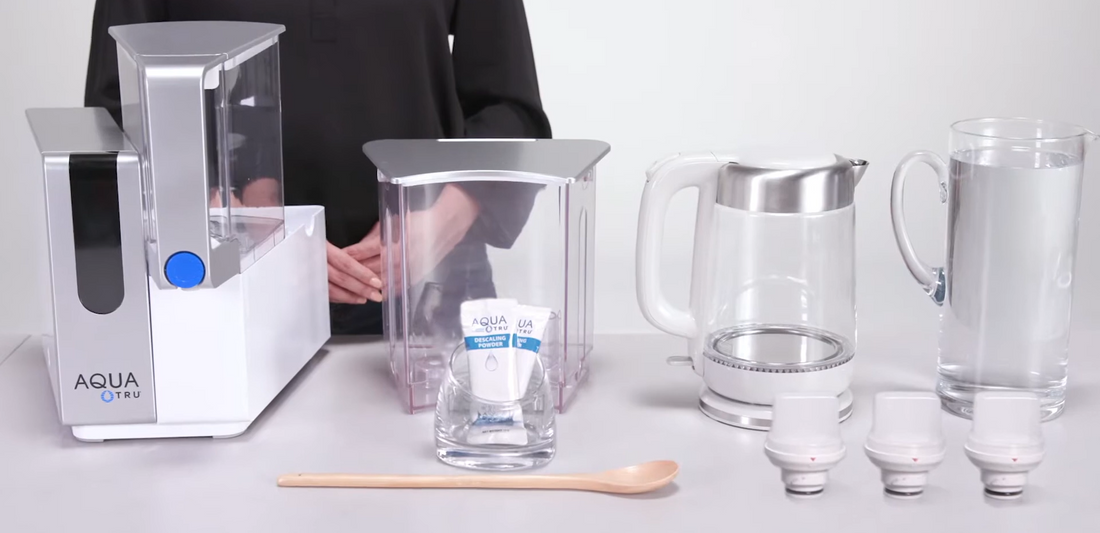Hard water, prevalent across many parts of the EU and UK, contains elevated levels of dissolved calcium and magnesium. The geological composition of these regions contributes to the hardness of the water, presenting a range of challenges for households and appliances.
Defining hard water
Water hardness is quantified in milligrams per litre (mg/L) of calcium carbonate (CaCO3). The categories of hardness are defined as follows:
- Soft: up to 100 mg/L
- Slightly hard: 100 - 150 mg/L
- Moderately hard: 150 - 200 mg/L
- Hard: 200 - 300 mg/L
- Very hard: more than 300 mg/L
Regional variations in hard water
In the UK, many households are affected by hard or very hard water. Research indicates that approximately 14% of these households utilise water softeners or purchase descaling products to address this issue. This widespread adoption reflects the seriousness of the problem and the proactive measures taken by many to mitigate its effects.
The impact of hard water

Hard water leads to several issues within household appliances and plumbing systems, most notably the formation of limescale. This hard, chalky deposit accumulates on heating elements, pipes, and taps, resulting in:
- Reduced appliance efficiency and lifespan: limescale build-up shortens the operational life of heating elements and diminishes the efficiency of appliances.
- Increased energy consumption: appliances require more energy to heat water due to the insulating effect of limescale deposits.
- Unsightly surface residue: hard water leaves visible marks on sinks, baths, and toilets.
- Unappealing film on hot beverages: tea brewed in hard water often develops an unsightly film due to mineral interactions.
Health considerations
While the current EU Drinking Water Directive does not regulate water hardness, several EU countries have implemented national standards. Both very low and very high levels of calcium and magnesium in drinking water have been associated with health concerns, including cardiovascular issues.
The importance of descaling and the AquaTru Descaling Kit
Given the prevalence of hard water in the EU and UK, regular descaling of your AquaTru water filter system is imperative. Limescale build-up can adversely affect the efficiency and performance of your AquaTru, potentially shortening its lifespan. Utilising the AquaTru Descaling Kit ensures your device remains in optimal condition, delivering consistently clean, great-tasting water.
The necessity of descaling

Descaling removes limescale deposits that accumulate from hard water. This mineral build-up can obstruct water flow, decrease filtration efficiency, and increase energy consumption as the system struggles to process water. Regular descaling is essential to maintain your AquaTru’s performance and extend its operational life.
For regions with moderate water hardness, descaling every six months is advisable. In areas with hard water, however, monthly descaling is strongly recommended.
Introducing the AquaTru Descaling Kit
The AquaTru Descaling Kit is engineered to streamline and optimise the descaling process, ensuring that your AquaTru water purifier operates at peak performance. This kit, available for both Carafe and Classic models, provides a comprehensive solution for maintaining your water filter system.
The kit includes:
- 3 AquaTru descaling filters or caps: these reusable filters are integral to the descaling process, ensuring that the descaling solution does not contaminate the regular filters.
- 6 packs of AquaTru descaling powder: composed of natural citric acid, this powder effectively dissolves limescale deposits without leaving harmful residues.
Advantages of the AquaTru Descaling Kit
High-quality citric acid
The citric acid powder included in the kit is of the highest quality, ensuring efficient dissolution of limescale without leaving any harmful residues. Being food-grade, it is safe for use in appliances that handle drinking water. The citric acid is meticulously formulated to be gentle on AquaTru components while effectively targeting scale deposits, ensuring optimal compatibility and effectiveness.
Specialised descaling filters
The descaling process necessitates the use of specialised filters to protect the integrity of the regular filters. These filters prevent the citric acid from being absorbed, which could otherwise compromise the effectiveness of the regular filters and potentially affect the taste of your water. The reusable nature of these filters also makes the descaling process more economical and environmentally sustainable.
Safety and convenience
If regular filters are mistakenly used during descaling, it is crucial to thoroughly rinse them by running water through the system multiple times. This step helps eliminate any residual citric acid and mitigates any temporary sour taste.
Best practices for descaling
To achieve the best results, it is recommended to use filtered or bottled water during the descaling process. Using hard tap water can diminish the effectiveness of citric acid, as it will react with minerals in the water tank rather than cleaning the internal components of the system.
Regular descaling with the AquaTru Descaling Kit is essential for maintaining the optimal performance of your AquaTru water filter system. By preventing limescale build-up, you ensure that your device remains efficient, providing high-quality water and extending its lifespan. Invest in the AquaTru Descaling Kit to keep your system functioning effectively, even in areas with hard water.





